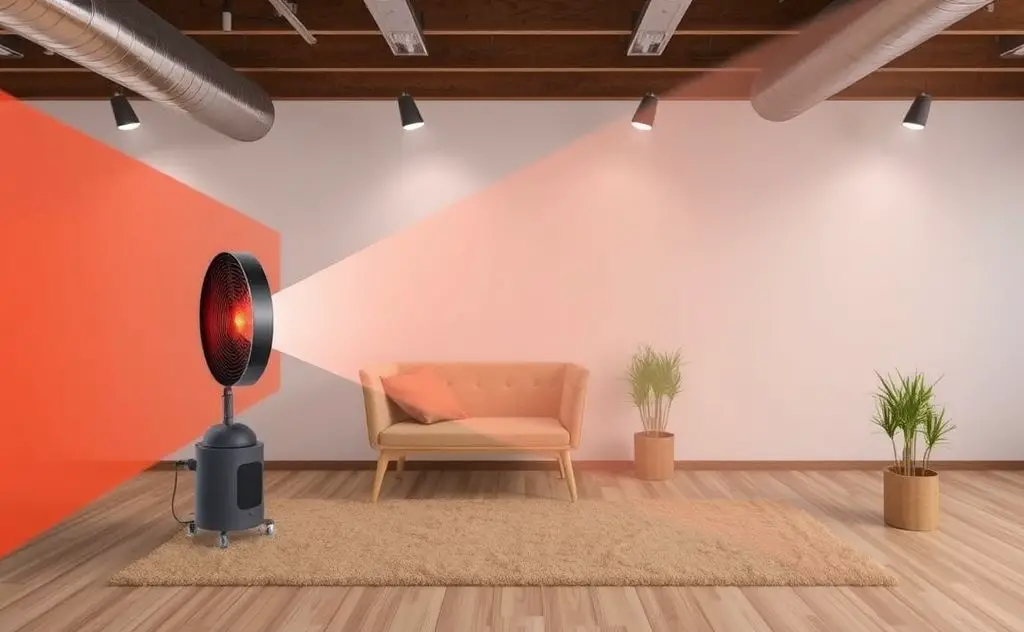Convection heaters are generally quiet, producing minimal noise, but some models may emit a soft hum or fan noise when in operation.
When choosing a heater, noise levels matter. Convection heaters are often praised for their quiet operation, but how do they compare to other types? Let’s explore what makes convection heaters silent or noisy in different situations.

How Convection Heaters Work
Convection heaters warm spaces through natural air circulation. Cool air enters at the bottom, gets heated, rises, and creates a continuous warm air current. This process requires no fans or moving parts.
Key Components
- Heating element (electric coil or water-filled pipes)
- Metal fins or panels to transfer heat
- Thermostat for temperature control

Noise Levels in Convection Heaters
Most convection heaters operate silently since they lack fans. However, some models may produce minimal sounds:
| Sound Type | Cause | Volume Level |
|---|---|---|
| Thermal expansion | Metal parts expanding when heating | Quiet clicks or pops |
| Water movement | In hydronic (water-filled) models | Occasional gurgles |
| Thermostat clicks | Electrical components switching | Faint clicking |
Comparing Heater Types
Fan-forced heaters average 40-50 decibels (similar to light rainfall), while convection heaters typically measure under 20 decibels (rustling leaves). For reference, smart space heaters with fans often include quiet mode settings.
When Convection Heaters Get Noisy
While generally quiet, some situations can increase noise:
Installation Issues
Improper mounting can cause rattling or vibration. Ensure the heater sits level and secure. For wall-mounted units like the timed convector models, use proper brackets.
Maintenance Problems
- Dust buildup on fins can cause uneven heating
- Loose components may vibrate during operation
- Mineral deposits in hydronic systems create noise
Reducing Convection Heater Noise
Follow these tips for silent operation:
- Place on stable, level surfaces
- Clean fins regularly with a soft brush
- Check for loose screws or panels annually
- For hydronic models, bleed air from system yearly
Professional Solutions
Persistent noises may require expert attention. According to heating specialists at Dimplex, unusual sounds often indicate installation or maintenance issues rather than product defects.
Special Cases: Baseboard Convectors
Some users report ticking sounds from baseboard models. This usually stems from:
- Thermal expansion of metal housing
- Improper clearance from walls or floors
- Loose mounting brackets
The EcoHome Network recommends leaving at least 1-inch clearance around all sides and ensuring proper bracket installation to minimize these sounds.
Choosing the Quietest Convection Heater
For silent operation, consider these features:
- Solid-state thermostats (no audible clicking)
- Thicker gauge metal construction
- Hydronic models with sealed systems
- Models with vibration-dampening feet
Premium brands often use advanced materials and designs to eliminate noise. While more expensive, they provide near-silent operation ideal for bedrooms or offices.
